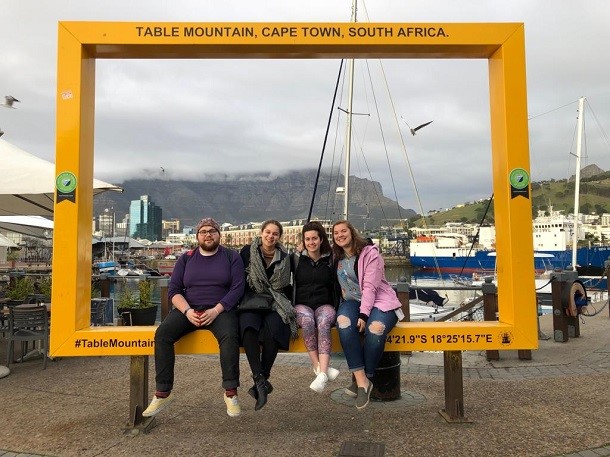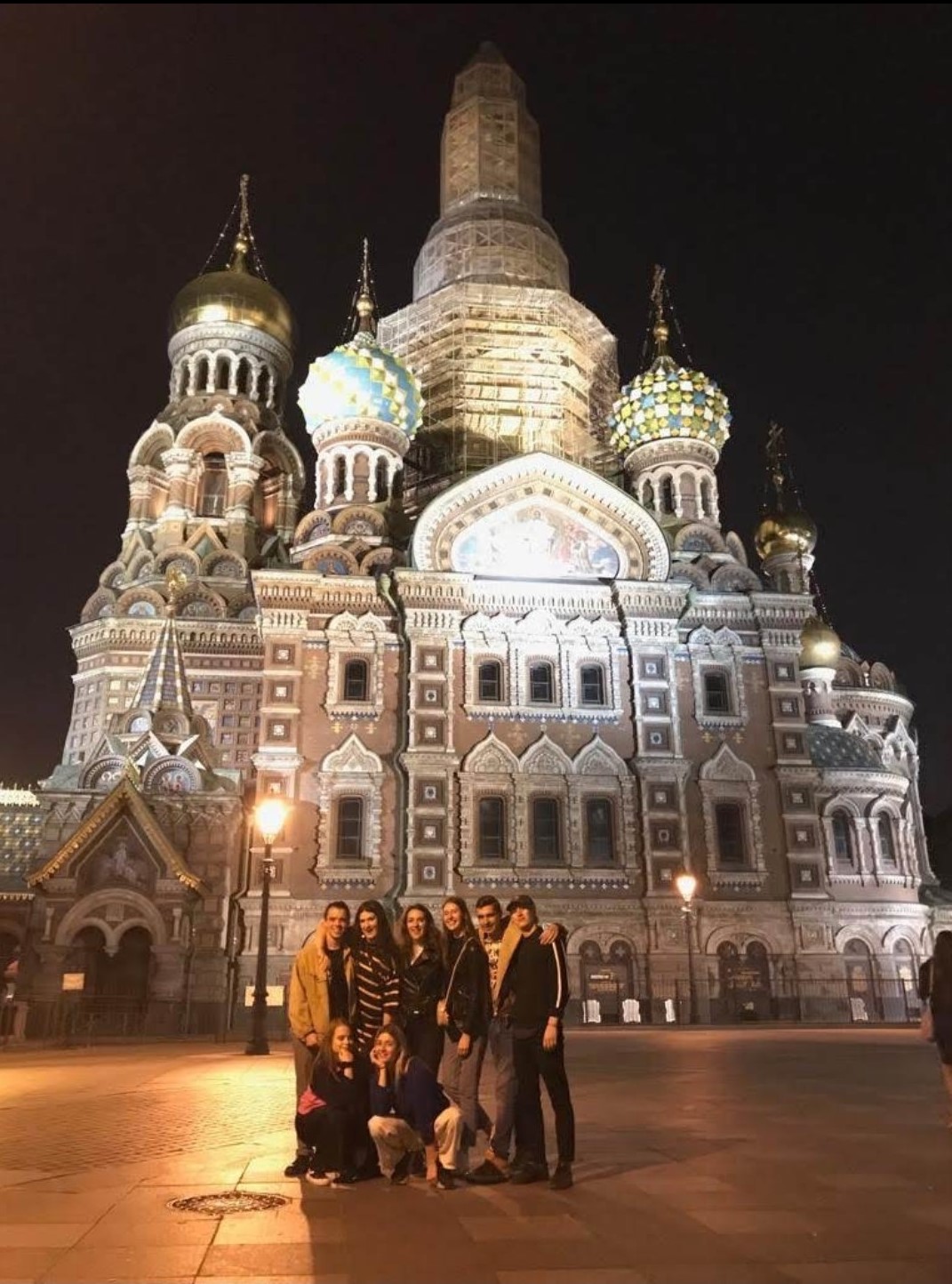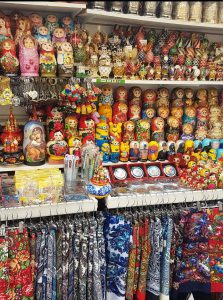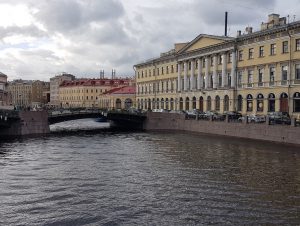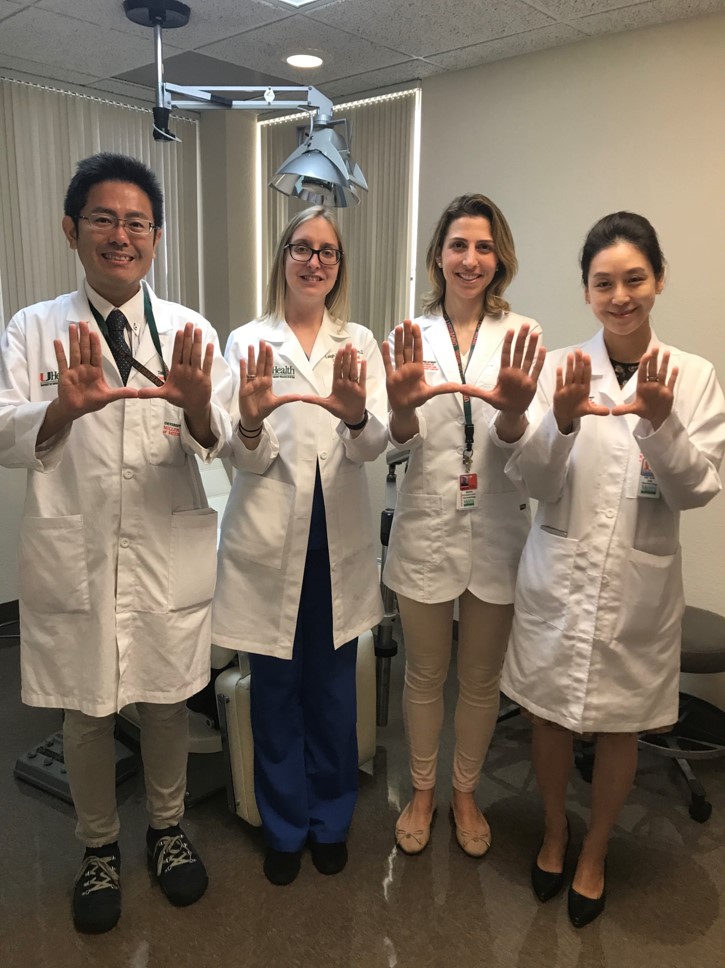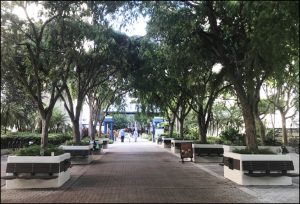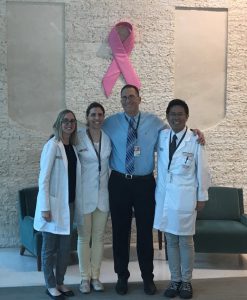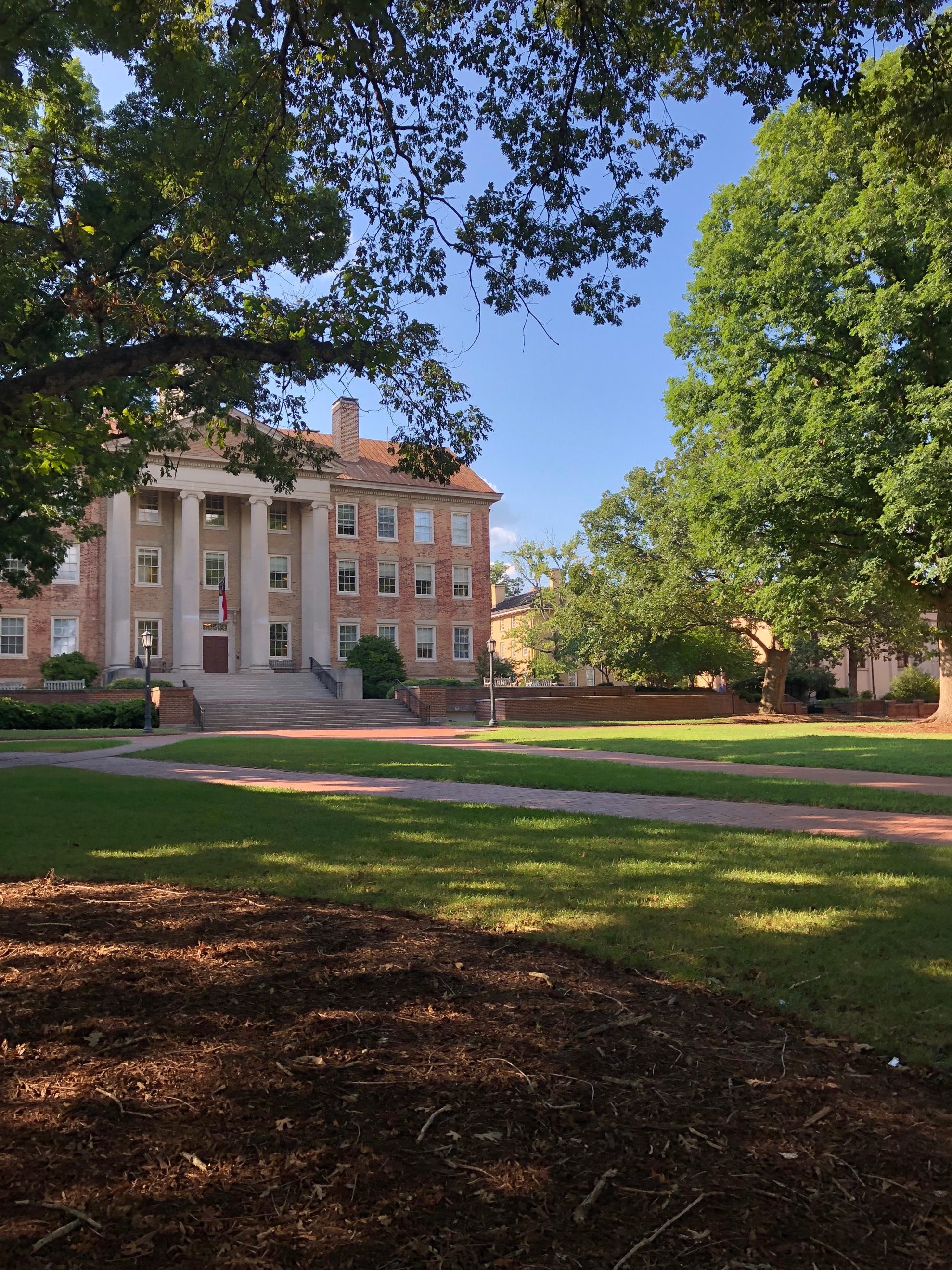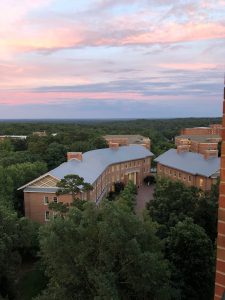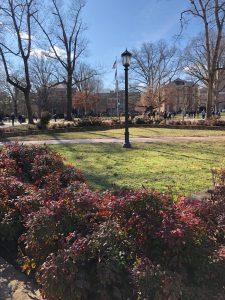I decided to attend Stellenbosch Summer School because it offered a unique and challenging academic experience with an all-inclusive social and cultural programme. By choosing Stellenbosch, I knew I would get to study fulfilling, intellectually stimulating modules while also exploring the Western Cape of South Africa with the guidance of local students.
A fantastic opening function was held on arrival to welcome us all to the programme. A group of performers called Drum Café came to play authentic African music for us, making it interactive so that we all had the chance to play, dance and sing along. Afterwards, we introduced ourselves to one another over some wine from the local vineyards and watched the South African students dancing to Afrikaans music, called Sokkie. I also got to experience the popular SA tradition of having a Braai, which is like a BBQ with music and dancing!
The university organised some optional excursions for us, so I chose a one-day safari at Aquila Private Game Reserve and Spa. This was an experience like no other – we drove out on a cold, crisp African morning and saw buffalo, rhinos, lions, zebras and elephants. The baby rhino was super curious about our adventure and came right over to our truck, flicking his ears and sniffing the air! We managed to get very close to the elephants which was amazing for me, as I’d never seen one before. Getting up close to the lions was a little scarier, but luckily for us they were happy and undisturbed by our presence!
On our first weekend we visited Cape Town, where we rode the sight-seeing city tour bus around. The highlight was visiting the District Six museum and hearing the story of our guide who had grown up there with her family. They lived there happily for years until the State declared it a ‘whites only’ area during the apartheid area, forcing her family to relocate and bulldozing the whole district. Hearing about her experience was very emotional, but really brought to life my studies of apartheid South Africa and opened my eyes to the significance with which it effected (and still does affect) people’s lives. On a lighter note, we had the chance to view all of Cape Town from the top of Table Mountain and ventured up there in a cable car. Due to the winter weather, we only managed a small glimpse of the beautiful view as the clouds passed and spent most of our time enjoying coffee and cake in the mountain-top café, before grabbing lunch at an open-front beach bar and café. The next morning, we watched the sunrise at the Victoria and Albert Waterfront and spent a few hours relaxing, enjoying South Africa’s best wines and street performers there.
Back at Stellenbosch, the summer school staff organized a South African Food Evening where we could sample popular foods of the nation, including; milk tart, koeksisters and pap. A few nights later they organised a career café, where a former Stellenbosch student came to speak about how his international experiences and connections have shaped his career and personal life. He helped us see the value in international experiences through his interesting and inspiring story. Since Stellenbosch is a small university town and relatively quiet out of term time, we were taken on a weekend away to Mykonos Resort on the Langebaan coast. It resembled a small Greek island and was the chance for us to relax from the intensity of our studies! We went on a yacht trip there and used the spa, which was amazing and super cheap. It was a really nice touch to our experience to have a mini holiday weekend.
On the journey back from our weekend away we were given a few hours at Spice Route Tastings, where we received vouchers to use on chocolate, wine, beer, biltong, or coffee. Stellenbosch is a wine region so as we enjoyed a nice meal at the pizzeria there, we overlooked the beautiful scenery of vineyards and mountains.
At Stellenbosch I studied South African Political History, which gave me a detailed insight into the history of a country I had never previously visited or studied. My second elective; Transitional Justice, has had a huge effect on me and my future plans. We were taught by a practitioner working as a peace-process advisor for war-torn countries, and mediator for victims of gross human rights violations. We examined peace processes in a variety of countries, including South Africa, Argentina, Chile etc. and were required to suggest and develop a strategy for peace in a country of choice. The chance to work with students from different academic backgrounds around the world was valuable in broadening my perspective on the controversial and sensitive issues of discussion. The elective was extremely engaging and inspiring, opening my eyes to an important line of work that I may wish to pursue in the future and helping me make international connections to facilitate my future career. Overall, my summer school experience at Stellenbosch was everything I had hoped for and more! Thank you Associated Commonwealth Universities for the grant!

